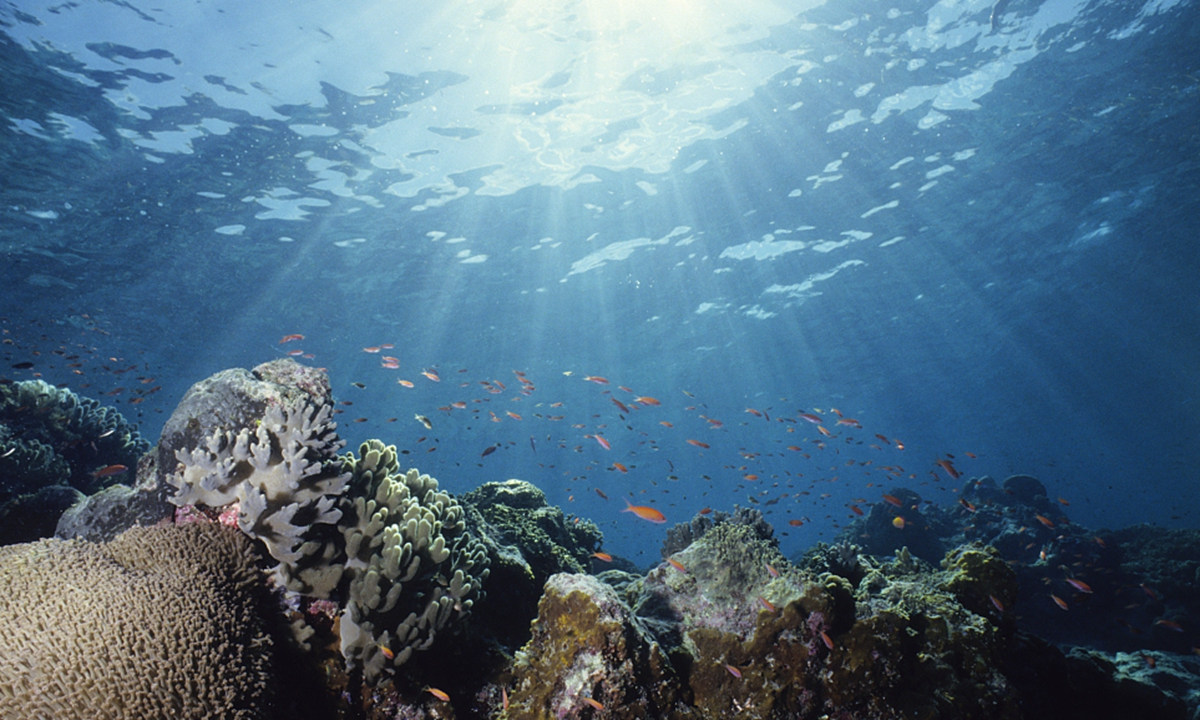
Photo: VCG
Disappointed with Australian officials’ short-sightedness and incompetence when it comes to environment protection, environment groups and renowned scientists in Australia submitted joint letters to UNESCO, calling to put the Great Barrier Reef on its “in danger” list.
The anxious Morrison government is trying to lobby against this change using any means available, according to some observers. Its officials even blamed China for the possible downgrading, which “fully shows the government’s narrow-mindedness and all-pervasive to China,” Chen Hong, a professor and director of the Australian Studies Centre under East China Normal University, told the Global Times on Friday.
In the joint letter that 10 leading ENGOs in Australia sent to UNESCO on Tuesday, CEOs of the organizations noted that poor water quality continues to degrade inshore coral reefs, and Australia’s progress to achieve its Reef 2050 Plan water quality targets has been very slow.
“Representing over 4 million Australians who love the Great Barrier Reef,” the groups recommended UNESCO to inscribe it on the List of World Heritage in Danger, and “to develop corrective measures” to protect this ocean jewel, the letter stated.
Earlier, after UNESCO released a draft decision of suggesting placing the reef onto “in danger” list in June, five Australia’s authoritative coral reef experts also sent a joint letter to show their strong support for it. UNESCO “has made the right decision,” they wrote.
Consideration of whether to downgrade the reef’s World Heritage status to “in danger” is purportedly to be discussed at the ongoing 44th session of the World Heritage Committee (WHC), which is scheduled to be held between July 16 and 31.
The 2,300-kilometer Great Barrier Reef, being included on the World Heritage List in 1981, has suffered great damage in the past decades due to climate change and environment deterioration, marine experts said. In recent years, the reef has “tragically…[undergone] three severe coral bleaching events,” read the joint letter of the five Australian scientists.
Coral bleaching occurs when the coral loses the symbiotic algae they need to survive, explained Wang Yamin, a professor at Shandong University’s School of Oceanography. Several reasons including temperature [rise], pollution and human activity can lead to coral bleaching, it said.
Severe, large-scale bleaching events frequently taking place in the same area is uncommon, meaning the reef there has faced serious ecological threat, Wang said.
“Considering the Great Barrier Reef’s current situation, I think it’s not too much to remove it from the World Heritage List, let alone downgrading its status to ‘in danger,’” he told the Global Times on Friday.
As many as 71 percent of Australians think the Great Barrier Reef is in danger, while 77 percent support the WHC to put it on the ‘in danger’ list, showed a polling conducted by Australian Marine Conservation Society in July.
Nonetheless, ignoring appeals from domestic environment experts and the general public, the Australian government insists on preventing the possible status downgrading of the reef for the sake of its own economic interests, Chen said. He criticized the government as shortsighted, “only considering the short-term commercial benefits” this top tourist destination can bring.
Worse still, the public found that the Morrison government attempts to cover up its incompetence in the reef protection through politicalizing the “in-danger” list. Australia’s environment minister Sussan Ley groundlessly claimed that “there were politics behind” the “flawed” decision, according to a Reuters article in June.
Liberal senator James Paterson even directly linked the UNESCO draft decision to China, which chaired the current WHC, saying the decision was motivated by “geopolitical considerations” “under a chair from China,” reported The Australian newspaper in the same month.
It’s surprising that Australian government regards the draft decision, being made to further protect the reef and its surrounding environment, as an attack from China, Chen said. “Rather than baselessly blaming China, Australia should stop its conspiracy theories and take responsible for its own environmental problems,” he noted.




